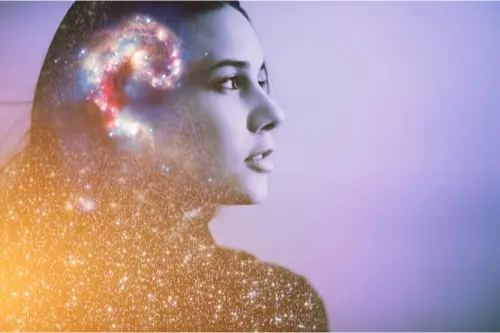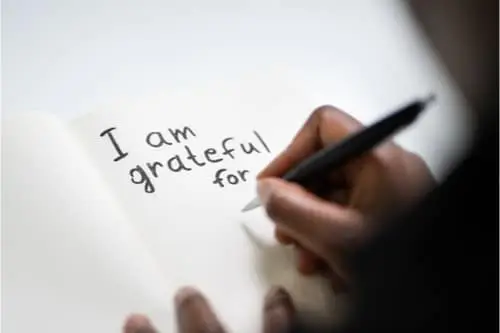One of the greatest human desires is to be happy. As people, we experience life individually, see the world through different eyes, and we all strive for similar things for different reasons. Happiness, however, is one common aspect we all long for. So, I want to expose you to the concept of being grateful as an avenue to a greater level of happiness.
Consider What Makes You Happy.
It’s important to consider what makes you a happy person, but not in a material sense. The things you have, the people you surround yourself with, and the beliefs you carry are all wonderful things, but let us move past these for now. Put them at the door for just a moment.
What matters is your perception in the way that you think about your life.
The happiest people are ones who show the most appreciation for things in their life by actively being grateful.
What is gratitude?
Gratitude is a social emotion that reflects appreciation for what a person receives and has. This includes material objects, but also extends to:
- interpersonal relationships
- life opportunities
- spirituality
- and an understanding of the self.
The complexity of gratitude allows for positive, long-lasting change for those who embrace it.
The Science Behind Being Grateful
In order to understand how gratitude can create meaningful and impactful outcomes for a person, it is helpful to first learn how it works. We can better practice being grateful in our lives and maximize the rewards when we understand the process.
Though the mechanisms are not colorful creatures, they are still quite interesting.
Brain Structures
Though the topic is relatively new in the realm of research, literature indicates several significant relations between gratitude and certain areas in the brain.
In response to gratitude-evoking situations, research has found activation in the:
- thalamus
- hypothalamus
- hippocampus
- and amygdala
These structures are linked to the regulation of emotions, memory, and bodily functions.
General mental health may be enhanced, then, due to increased happiness and hopeful outlook resulting from the positive mindset that being grateful creates.

Potential advances as a result of being grateful include:
- Improved quality of sleep.
- Social emotions like empathy and relief.
- Related neural networks vital to socialization and pleasure are strengthened.
- Regulation of stress and pain relief.
Relaxation and decreased stress are products of gratitude, promoting psychological gains for a person. Physical health increases as the decrease in physiological stress responses reduce strain on the body.
Neurotransmitters
Neurotransmitters, chemicals in the brain that trigger responses along neural pathways, are also affected by a grateful attitude.
Dopamine is related to positive feelings, like happiness and optimism. Being grateful through acts such as volunteer work can be a great way to promote dopamine stimulation and regulation. Performance and goal achievement also benefit as dopamine is linked to intrinsic motivation.
Serotonin is similarly associated with improvements in mood, willpower, and motivation. It has been found that both neurotransmitters are released through circuits activated by gratitude.
Mental health for a person can improve from the presence of these neurotransmitters by decreasing sad mood or loss of pleasure, as well as alleviating overall distress. Personal fulfillment is also encouraged through these circuits as a person may experience a greater drive to accomplish tasks and seek interpersonal connections – contributing to both mental and social health.
If you get yourself to a place where you are more grateful for your life– and everyone has things that they are grateful for– you will start to become a happier person.
Remind yourself to be grateful on a regular basis
So, years ago I was watching an episode of Cribs. Penny Hardaway, a college basketball coach, did something that I thought was captivating because it wasn’t something you really saw in that show.
He had a picture of the childhood home that he grew up in, which was very small. He had this picture framed and said it’s actually his favorite piece of artwork in his home. He looks at it every single day; it reminds him of where he’s come from and forces him to feel appreciation with where he’s at right now.
Sometimes when we remind ourselves of where we came from or remind ourselves of the more challenging experiences we’ve gone through, the contrast better shows us how to be grateful for where we are now.
Keep a gratitude journal

Writing out your thoughts creates muscle memory for your brain. It is shown that writing is better than typing and will help to resolve emotions.
If you’re thinking to yourself, “I don’t like to journal”, well that’s ok. You don’t have to actually write it out.
You can actively be grateful in a variety of different ways.
Put it into a digital planner.
I actually use Panda Planner. Every morning it asks me to list three things that I am grateful for. So before I do anything, I think about everything that I am appreciative of.
Make it a habit. If you can work it into your daily routine it will be even easier.
Use visual reminders.
There are so many different ways that you can do this.
- You can have a poster that reminds you to be grateful
- You can have a vision board or a dream board. This is something that I do. This thing is out about 7 days a week, especially the 5 days a week when I’m working. I am constantly looking at it.
- Sometimes other people can be visual reminders. For instance, if you have animals you can start to tell yourself, “Every time I see my cat, I’m going to remind myself how grateful I am for this cat, how much I love him or her”. This simple act can become a way that you can feel appreciation every time you run into a family member or every time that you see an animal.
Work one or all of these strategies into your daily routine and when you just want to feel good feelings.
What not to do.
You don’t want to just write down “I’m appreciative of my job, I’m appreciative of my spouse”, if you don’t really feel that way.
It’s more important for you to write down that you actually feel appreciative of, even if it is superficial, compared to something that you feel you should be appreciative of but you really aren’t.
Time really can heal.
With time, you will start to notice that this act of ongoing appreciation is going to change you as a person. You’ll start to notice that you appreciate even the smallest things in life. You will appreciate more of the people around you and you will, in turn, become a more pleasant person. Overall you will see improvement as a happily, functioning human being. Which is awesome and that is exactly what we’re after.
Let Me Know How You Feel
By taking a step back to evaluate and appreciate the importance behind the various elements that invent our lives, we allow ourselves to take an active role in our journey towards a greater well being.
Please let me know in the comments below what you do to practice appreciation.
Give this video a like, be sure to subscribe, and to hit the notification bell so you can stay plugged in and receive lots of positive content from myself and our incredible Makin Wellness team.
Stay Happy! Stay Healthy!








